Movie review: Fantastic Beasts - The Secrets of Dumbledore
“To the well-organized mind, death is but the next great adventure…”
There are few imaginary realms as rich. immersive and profoundly considered as that of the Wizarding World. And that is true of this movie, despite it suffering from a case of the cursed middle child syndrome.
Fantastic Beasts: The Secrets of Dumbledore, is the third film of what we now know will be a five part series, and because there is no resolution, no suspicious end of term Hogwarts House Point tabulation, you end up walking away from the screen with a sense that this movie is at its core, a narrative bridge between what has gone and what is still to be.
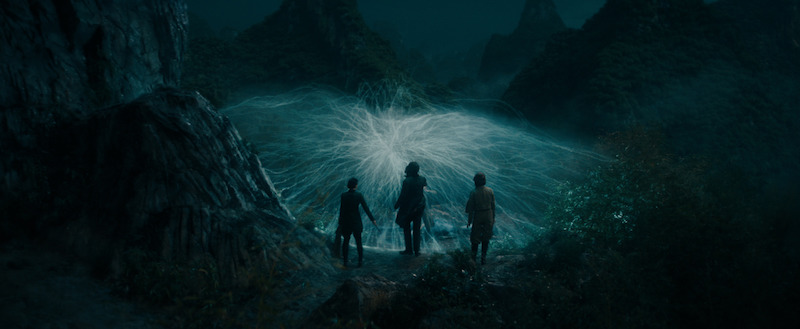
But if you’re willing to perform a small cognitive chant of Wingardium Leviosa — and rise above the plot limitations, there’s plenty of charm, and a wizard’s sleeve full of Potter-esque magic to love about the movie.
Fantastic feats
A young Albus Dumbledore (represented earnestly by a twinkly-eyed Jude Law) and returning reluctant, deliciously British hero Newt Scamanda (Eddie Remayne) assemble what amounts to a Wizarding G-Unit, tasked with interrupting nefarious meddling in the upcoming wizarding elections, that at times feels very much like a satire of what recently happened over there *gestures wand towards the Atlantic*.
They’re executing a plan that not even its conceiver, Dumbledore allows himself to know the full extent of, bonded as he is, to the mind of his nemesis.
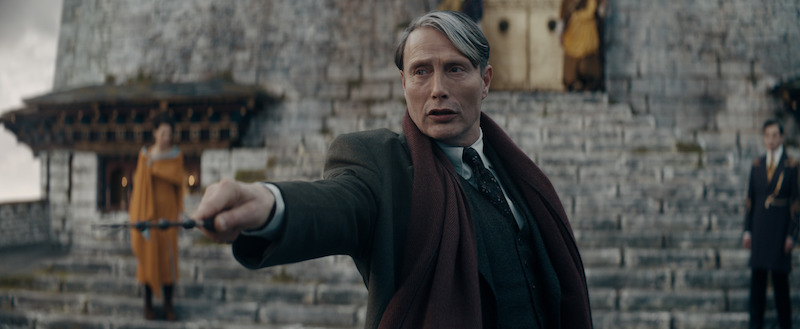
The election tampering is of course being perpetrated by Gellert Grindelwald (this time portrayed by Mads Mikkelsen — no mention is made of his dramatic appearance change, and why would there be, he is after all ‘a wizard Harry’) and his squad of proto-Death Eater scallywags. Grindelwald is up for the title of Supreme Mugwump, head of the global wizarding order, and he’s standing on a single manifesto pledge of ‘death to the muggles’. Given that the events of this story go down during the 1930s — a time when the muggling world is caught up in its own dark arts — they really aren’t aiding themselves with a strong defence for their right to coexist.
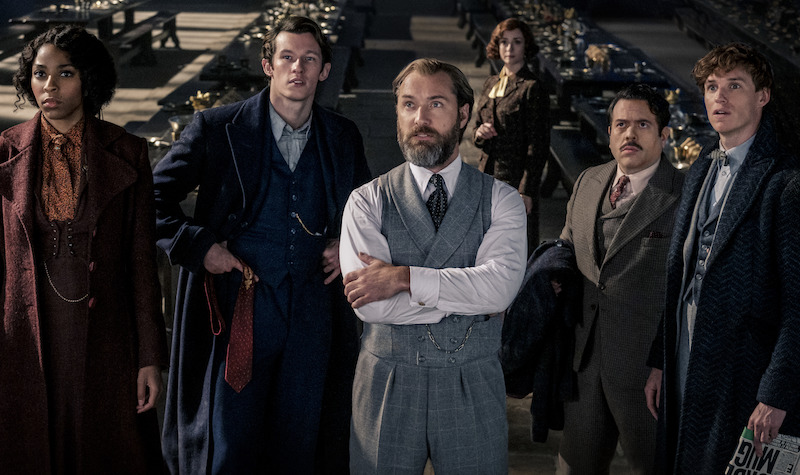
As a side note and in case you’re wondering how exactly the office of Supreme Mugwump is selected, it’s based around a form of direct proportional representation, one-wizard-one-vote. The ballots take place only after a Qilin — a mythical beast that’s able to stare into souls and divine the inherent goodness of an individual — has given its own verdict on each of the candidates. An electoral reform Fifa would do well to look at.
Casting a spell
The casting is as enchanting as the subject matter — Jessica Williams’ charismatic performance as Professor Eulalie “Lally” Hicks, is an easy highlight. Dan Fogler is back as Jacob Kowalski, the loveable giggle water-chugging muggle (who feels destined for big things in the conclusion of this saga). Eddie Redmayne, Ezra Miller, Alison Sudol, Callum Turner and Katherine Waterston all continue to dazzle.
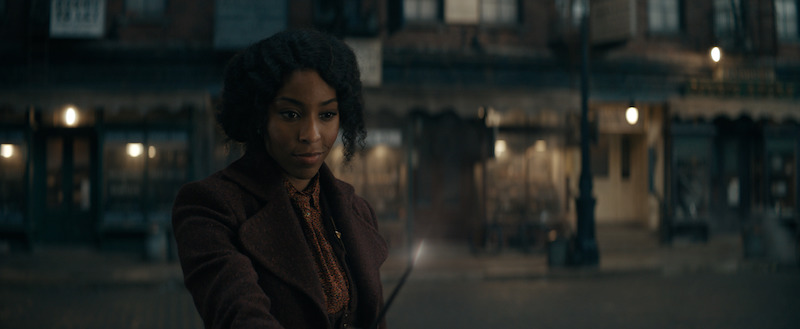
Whilst the binary stars of Dumbledore (Law) and Grindlewald (Mikkelsen) circle each other from a distance, playing a tense, high-stakes game of wizard’s chess, their connection is a reminder that this story cannot simply be understood in terms of good and bad. It’s more grown up than that sort of stand-off, more nuanced than a Potter-Voldemort clash, and both actors deliver the conflict of philosophy handsomely.
The Standard Book of Spells
The artful flicks of J.K. Rowling’s wand are felt in this film — the great tradition of Hogwartian swashbuckle is honoured with gusto, there are horcruxes of genuinely humorous asides scattered throughout the story (Newt and Theseus’ (Callum Turner) perilous crab dance is an instant classic), Bertie Botts Beans gags and heavy strokes of what we assume is subtle Fawkes-shadowing.
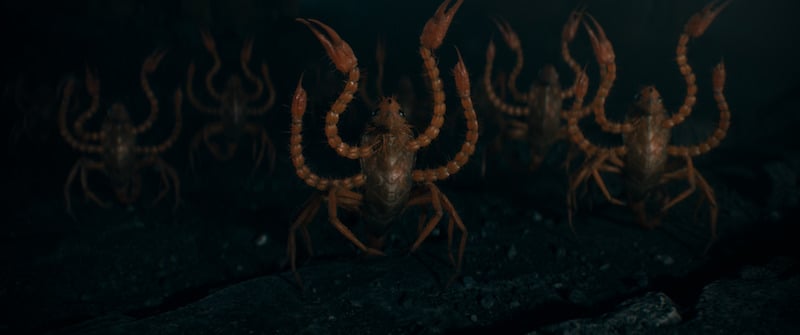
But what about ‘the secrets’ teased in the title? The truth is we don’t really learn a lot of new information, more that there are secrets — secrets that we don’t yet know and those that we don’t yet know, that we don’t yet know. But hey, that’s Dumbledore.
What’s On spoke with Jude Law about pulling on the robes of this much-loved character, already portrayed so poetically by two big-screen icons (Richard Harris and Michael Gambon), and about how his own interpretation of Dumbledore differed from what we’ve seen before. He had this to say: “He’s not the fully formed Dumbledore of the Harry Potter Books yet, he’s a man still finding his way, still confronting his demons … he’s facing the past, facing himself and his own guilt — but the connection is still there … he’s mischievousness, it’s his humour and his belief in people, he sees the potential for good, and I think that’s something he’s always had”.
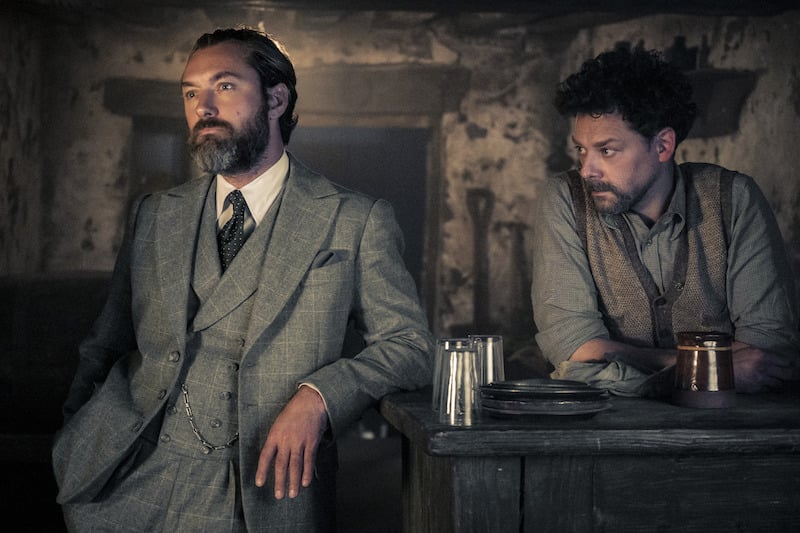
Verdict: Fantastic Beasts 3 is not without its misspells, it’s not even likely to be remembered as the best film of the series, but it is a highly enjoyable ‘next great adventure’, a wizarding watch well worth its run time. Four stars to Gryfyndor.
Rating: 4/5
Fantastic Beasts: The Secrets of Dumbledore is out in cinemas across the UAE from April 28.
Images: Provided
